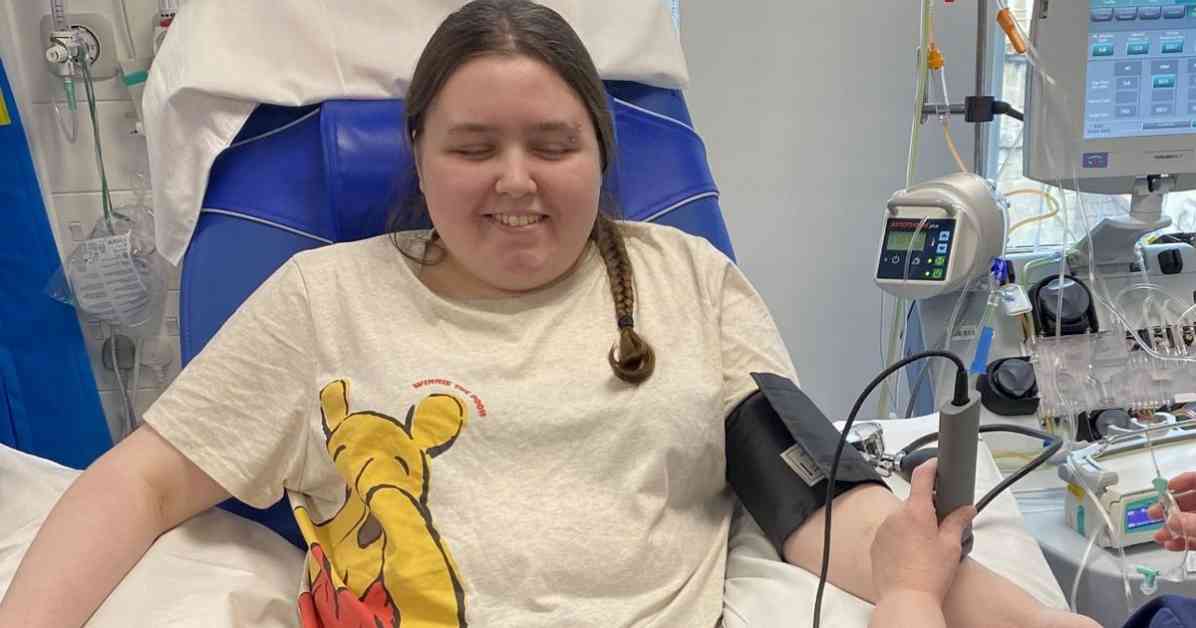A Bristol NHS team has been used as a blueprint for the roll out of a service that means fewer patients need surgery, improving patient experience and saving the NHS money. The NHS Blood and Transplant (NHSBT) Therapeutic Apheresis Services (TAS) unit in Bristol has introduced a new ultrasound service that has proven to be quite successful. The service aims to reduce the number of patients requiring surgery, leading to improved patient safety, experiences, and cost savings for the NHS.
The team at the Bristol Haematology and Oncology Centre has been utilizing ultrasound guided canulation with great success. This technique has now been implemented in eight other TAS units across England. The ultrasound guided canulation technique is particularly beneficial for patients with conditions such as sickle cell disease and blood cancers.
Over an eight-month period, the Bristol TAS unit used ultrasound guided canulation 177 times for 57 different patients or donors. The success rate was 100%, with 96 central lines being avoided, resulting in an approximate saving of £43,000 for the NHS. Following this success, an ultrasound guided canulation training program was initiated across all eight TAS units in the country. It is estimated that over 200 central lines have been avoided since the training began in May 2023.
Tegan Rendell, a 20-year-old patient who undergoes plasma exchange treatment for Autoimmune Limbic Encephalitis, expressed her gratitude for the ultrasound guided canulation technique. She mentioned that her veins are difficult to find, and previous cannulation attempts left her arms bruised and sore. However, with the new technique, the process has become quick and easy, allowing her to have a better quality of life after each treatment. The introduction of ultrasound guided canulation has not only improved the patient experience but has also reduced the time spent in the hospital, avoiding the need for surgical procedures.
Head of Therapeutic Apheresis Services at NHS Blood and Transplant, Teresa Baines, highlighted the positive feedback received from patients regarding the ultrasound guided canulation technique. She emphasized the profound benefits it offers to patients, including increased comfort, reduced hospital stays, and less anxiety around medical procedures. The success of the Bristol unit in minimizing central line insertions through this method led to its implementation in all TAS units.
The Education and Training Lead Nurse at TAS, Sam Ntakirutimana, shared the impact of the ultrasound guided canulation training program on patient care. He mentioned that while the teams are skilled in cannulation, there are instances where veins are difficult to locate, necessitating central line insertion. The use of ultrasound has made a significant difference in patient experience, with fewer central lines being fitted, resulting in cost savings for the NHS. The goal now is to ensure that all TAS nurses are trained in this technique to further enhance patient care.
In conclusion, the introduction of ultrasound guided canulation in TAS units across England has marked a significant improvement in patient care and cost efficiency for the NHS. The success stories shared by patients like Tegan Rendell highlight the positive impact of this technique on their overall experience. With ongoing training programs and a commitment to expanding the service, TAS aims to provide the best possible care for all patients in need of therapeutic apheresis services.

